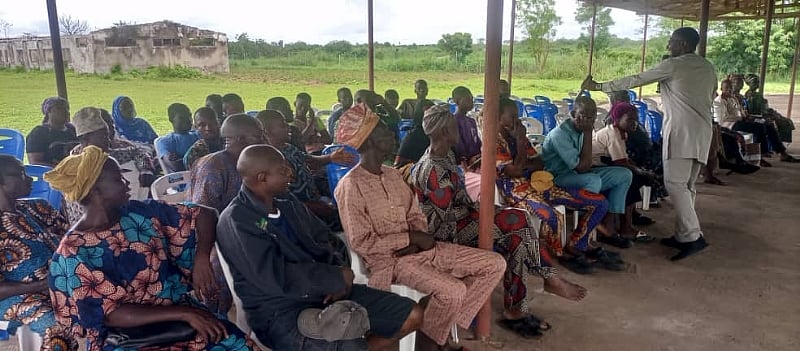The African Agricultural Technology Foundation (AATF) has launched a new training program aimed at improving the skills of cassava farmers and processors in southwest Nigeria. This initiative, known as the Good Agronomic Practices (GAP) training program, seeks to reach over 6,000 participants, focusing particularly on empowering women and youths involved in the cassava value chain. Kicking off with its first batch of 1,000 participants—comprising both farmers and processors—the program is set to unfold over three years, with increasing numbers of trainees each year: 1,000 in 2024, 2,000 in 2025, and 3,000 in 2026.
The GAP training program is facilitated by the National Root Crops Research Institute (NRCRI), Umudike, and is designed not only to train farmers but also to include processors, mainly women from the Oyo and Ogun states. AATF’s commitment to providing training comes as part of the establishment of facilities for cassava mechanization and agro-processing. The goal is clear: to improve the participants’ livelihoods through enhanced production methods and increased value addition in cassava processing.
AATF’s Programme Officer for Agribusiness, Mr. Kehinde Jimoh, highlighted the broader objectives of the initiative during the program’s launch. He underlined the need to empower farmers and processors with best practices in agronomy and strategies for value addition, which would ideally translate into better income and productivity for participants. This emphasis on empowerment aligns with AATF’s overarching mission to enhance the productivity of cassava, a vital crop for many smallholder farmers in Africa.
Dr. Adeyemi Olojede, the Director of Tuber Crops Research at NRCRI, voiced his enthusiasm regarding the potential impact of the training. He pointed out that beyond merely increasing cassava production, the program focuses on improving value addition, which can offer farmers alternative sources of income. Dr. Olojede emphasized NRCRI’s commitment by deploying a skilled team of experts to ensure the program meets its objectives, thereby contributing to food security in Nigeria.
The training is backed by the German Federal Ministry for Economic Cooperation and Development (BMZ) and implemented by Deutsche Gesellschaft für Internationale Zusammenarbeit (GIZ) GmbH in partnership with AATF, Agridrive Ltd., and Clayuca Corporation. It encompasses essential areas such as best agronomic practices, cassava value addition, and financial management as part of the broader “Mechanization of Cassava Production and Processing Project” under the i4Ag initiative. This strategic approach is expected to be a game changer for cassava farmers in Nigeria, equipping them with crucial knowledge and tools to enhance productivity sustainably.
Established in 2003, AATF aims to tackle food security challenges in Africa through agricultural technology, viewing the agricultural sector as a foundational element for the continent’s economic growth. AATF serves as a pivotal platform for negotiating access to technology and fostering partnerships necessary for developing and deploying innovative practices that can benefit smallholder farmers across Sub-Saharan Africa. Through initiatives like the GAP training program, AATF is actively contributing to the enhancement of agricultural productivity, positioning Africa as a critical player in the global economy.


